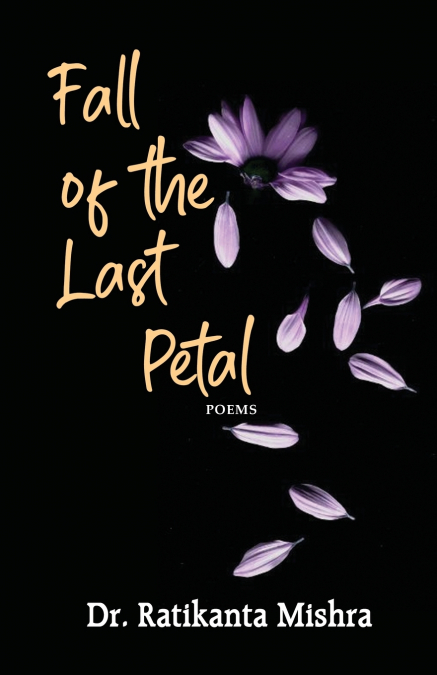
Ratikanta Mishra
’Fall of the Last Petal’ is my third collection of English Poems, the other two being ’Silence between two Words’ and ’A Dialogue of Yesterday.......Continues’. A poet per se should not speak more. His poems should. ’Fall of the Last Petal’ is an anecdotal metaphor of transformation of a beast into a man. To a pair of bare eyes, the fall of the last petal is the declaration of the death of the flower. A poet, however sees this whole episode to be a narrative of renewal and regeneration of life in the ever present Cycle of Life and Death. A petal returns to the womb and takes a rebirth to become a full-blown flower. What we see is not the whole truth, a lot remains unseen. Life, the ever present knows no finality. Death also is not the end. To be prescient, there is no beginning and no end. The Eliotesque narration in ’Burnt Norton’ (No.1 of ’Four Quartets) is apt here to be quoted verbatim. 'Time present and time past Are both perhaps present in time future And time future contained in time past'.'What might have been is an abstraction Remaining a perpetual possibility'. The poet does not have the sole and exclusive right over his poem. At times, poem chooses the poet. Words on their own dictate the poet to note down the lines. The only intellectual capital of the poet, if there is any, in his poetic sensibilities and perspective. Sensibility is his inward being and perspective is how he sees his surroundings. Sometimes the poet remains in the oblivion, outside the circumference of the poem. That is the discourse of his meditation, and salvation. What more does a poet need to prove his existence ? My book is now in your hands for critical scrutiny which you have acquired with the language of your consciousness and wisdom. It gives me immense pleasure to expect my readers to have an open dialogue with the poems. I am to conclude with the extract of the poem 'Accomplice' by Jorge Luis Borges. 'They crucify me, I have to be the Cross, the nails. They hand me the cup, I have to be the hemlock They trick me, I have to be the lie They burn me alive, I have to be the hell'. Need I say anything more after the extract ? --Dr. Ratikanta Mishra